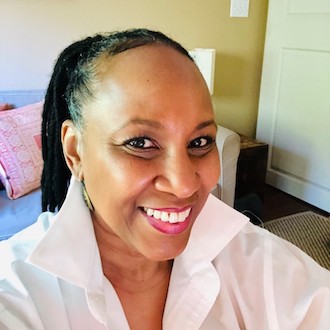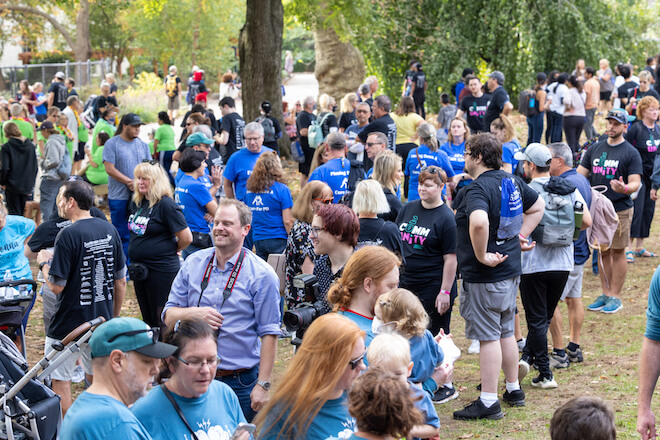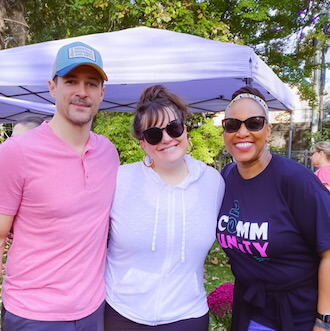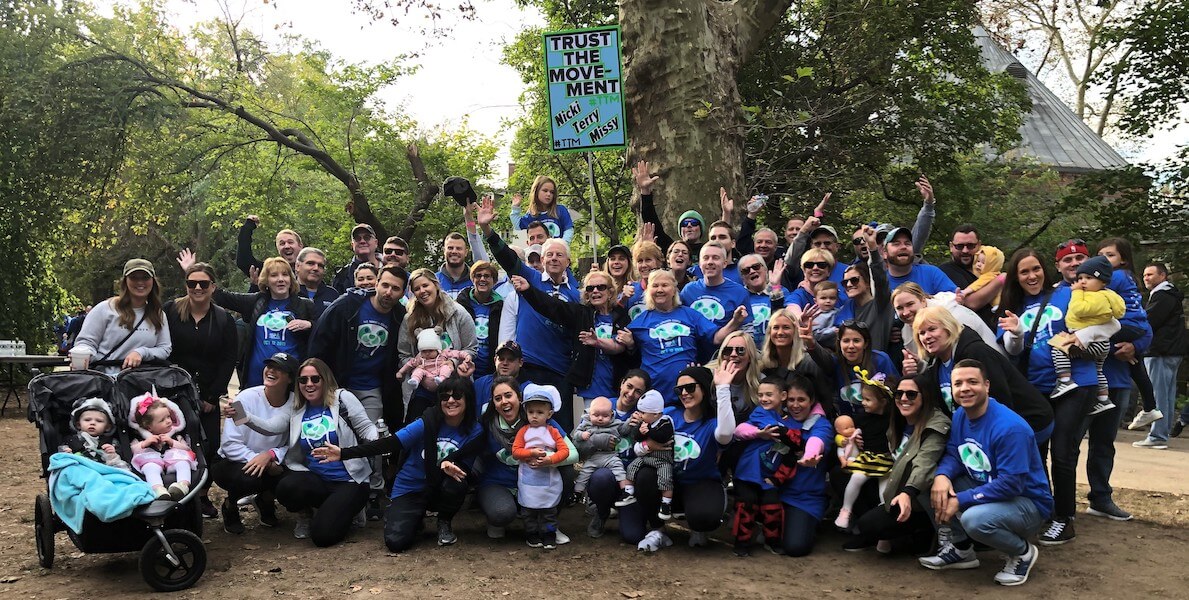Up until a few years ago, The Parkinson Council’s annual fundraising walk looked a lot like its clientele and its board: Almost entirely White, even though it is held in — and benefits — Philadelphia, which is more than 50 percent Black and Brown.
This year’s walk, Saturday at The Philadelphia Zoo, should also be a reflection of he Council’s work — but this time, organizers say, the several hundred participants will look a lot more like the city around them. That, because of the work of Parkinson Council CEO Wendy R. Lewis, is no accident.
Lewis has led the Council for 12 years. For 10 of those years, she, a Black woman, avoided bringing her personal experiences with race and gender to the boardroom table. Then, George Floyd was murdered, the country erupted, and she had to speak up.
“You cannot raise yourself out of the social justice stuff. You can’t turn your face away and ignore it,” she says. “You have to do it for your own mental and emotional health.”

So, she spoke up — to a mostly White board, who, until fairly recently, served mostly White patients and their families. And she spoke up again.
Board member Eric Berkowitz remembers those moments. “I’m watching and listening to Wendy execute these delicate, uncomfortable conversations with a tremendous amount of sophistication,” he says, “I was working at a big law firm at the time — and no one was doing this as well as our little nonprofit.”
That little nonprofit is a 40-year-old charity that raises money for Parkinson’s outreach and research at Penn, Jefferson, Cooper, the VA and other local hospitals. Parkinson’s Disease (PD) is a neurological movement disorder that, in 90 to 95 percent of cases, affects people over age 60. Typical symptoms include stiffness, difficulty with balance and coordination, slowness, tremors and trembling, and, later, difficulty swallowing, depression and a weakened voice. PD is often mistaken for the unavoidable results of aging.
Dan Aaron called PD “the relentless hunter” — ready to strike, to freeze your body, when you most need to move.
The difference, of course, is that medication and therapies can delay progression and improve symptoms in Parkinsonians, which is why getting a correct diagnosis and treatment is so important. This has become the driving mission of the Chestnut Hill-based Parkinson Council.
In the midst of the nation’s racial reckoning in 2020, Lewis pointed out to her board an obvious fact: Most Philadelphians are not White — but those being treated for the disease were.
She had backup for this: Dr. Howard Hurtig, who’d helped found the organization but, until he recently retired from his post as a neurologist and PD researcher at Penn Medicine, largely stayed in the background. “Two years ago, Philadelphia was 46 percent African American — and 8 percent of the people in our waiting rooms were African American. At the VA Hospital, that percentage is a little higher, 22 percent,” he says. “It could make you cringe.”

The board decided that any funds raised would continue to fund local research — and would also serve our region’s portion of the world’s 10 million Parkinsonians, with, at Lewis’ urging, a specific effort to support Parkinsonians of color. Today, the group funds region-wide exercise programs, social workers, community support groups, dance classes, a choir, art making at the Philadelphia Museum of Art — and the simple act of referring non-White Philadelphians to the best possible doctors to diagnose, treat, care for and understand them.
Lewis also had the support of her board president, Erika Aaron, who had spent her career in public health — and has social justice in her family legacy. Her late father, Comcast co-founder Dan Aaron, funded the Parkinson’s rehab center at Pennsylvania Hospital in 2000, in part to provide physical and emotional support for patients unable to afford it. Among his corporate colleagues, Aaron, a Parkinsonian, was known as socialist-adjacent, the leader who looked out for the little guy, who wanted better for everyone.
Erika remembers her dad called his disease “the relentless hunter” — ready to strike, to freeze your body, when you most need to move. Well into the 1980s, he noticed the overall Whiteness of his fellow PD patients, and worked with Hurtig and his neurologist colleague Matt Stern to hire a social worker who would do outreach to misdiagnosed or undiagnosed Parkinsonians in Black and Brown communities, without great success.
The Parkinson Council provides “information and resources to help create a pathway for folks who may think they have Parkinson’s,” says Lewis. “We want to be that touchpoint before they go into that institution and treatment.”
“We realized we really needed to educate the doctors in the communities — the small doctors’ offices that they were going to. That’s where we needed to focus. But we just couldn’t reach them,” recalls Aaron.
Fast forward to 2020, and the Council created a diversity committee to ensure every grant they give out goes to a group making a concerted effort to include historically dis-included patients. Again, progress hiccuped, so Lewis reached out to an old contact, Rev. Marshall Mitchell of Salem Baptist Church in Abington, the largest Black church in Montgomery County. Salem is the house of worship of Dr. Ala Stanford, the founder of the Black Doctors’ Covid-19 Consortium, and more recently, the Biden-appointed regional director for the Department of Human Health and Human Services.
“Marshall’s congregation had taken the lead on all things related to health disparities,” says Lewis. “I told him, ‘I don’t know what we’re doing wrong.’”

The response “was really clear.” She recalls him saying, “‘None of this is going to happen unless you build trust … trust, trust and trust.” Today, the Council funds a facilitator of a PD support group at Salem Baptist, and plans to establish one soon within a large Black congregation in Philadelphia.
The Council also partnered with the education-minded, resource-rich Davis Phinney Foundation, based in Colorado, to learn how to build that trust, to provide “information and resources to help create a pathway for folks who may think they have Parkinson’s. We want to be that touchpoint before they go into that institution and treatment.”
Today, when a call comes in, Lewis can guide them to reach out to set up doctor’s visits, including at one of Philadelphia’s National Parkinson’s Foundation-designated “Centers of Excellence,” facilitate transportation, answer questions, and, more often than not, get new patients involved in the Council itself. Progress, like Parkinson’s itself, is slow, but steady.
“You used to go to events like our walk, and you wouldn’t see people who look like me,” she says, “Now, when you go to our walk, you’ll see more people of color.”
The Walk to Stamp Out Parkinson’s takes place Saturday, October 8 from 8:30 to 10am at the Philadelphia Zoo, 3400 Girard Avenue. The cost is $45. Register here.
![]() MORE ON HEALTHCARE IN PHILADELPHIA FROM THE CITIZEN
MORE ON HEALTHCARE IN PHILADELPHIA FROM THE CITIZEN



